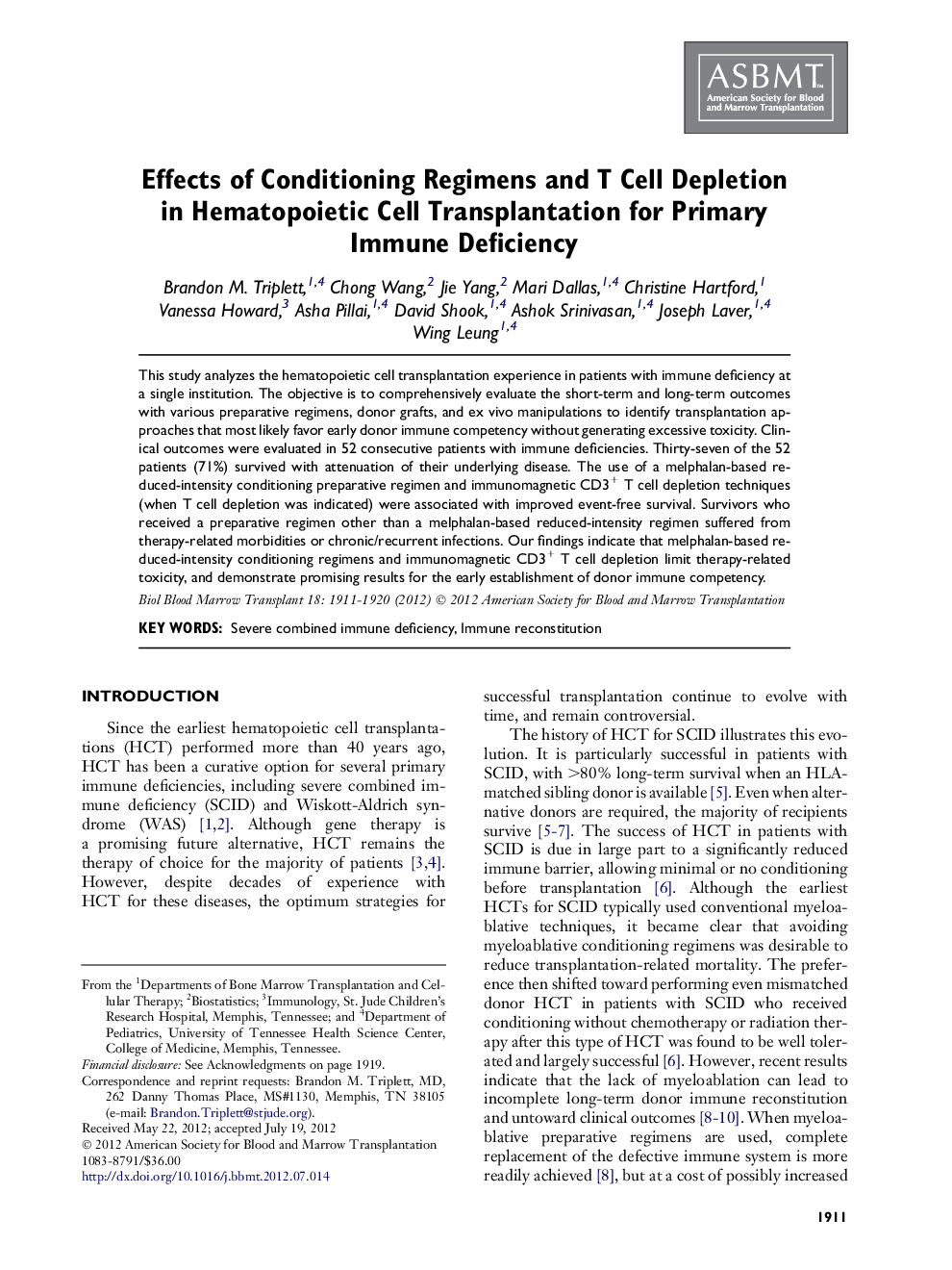| Article ID | Journal | Published Year | Pages | File Type |
|---|---|---|---|---|
| 2103543 | Biology of Blood and Marrow Transplantation | 2012 | 10 Pages |
This study analyzes the hematopoietic cell transplantation experience in patients with immune deficiency at a single institution. The objective is to comprehensively evaluate the short-term and long-term outcomes with various preparative regimens, donor grafts, and ex vivo manipulations to identify transplantation approaches that most likely favor early donor immune competency without generating excessive toxicity. Clinical outcomes were evaluated in 52 consecutive patients with immune deficiencies. Thirty-seven of the 52 patients (71%) survived with attenuation of their underlying disease. The use of a melphalan-based reduced-intensity conditioning preparative regimen and immunomagnetic CD3+ T cell depletion techniques (when T cell depletion was indicated) were associated with improved event-free survival. Survivors who received a preparative regimen other than a melphalan-based reduced-intensity regimen suffered from therapy-related morbidities or chronic/recurrent infections. Our findings indicate that melphalan-based reduced-intensity conditioning regimens and immunomagnetic CD3+ T cell depletion limit therapy-related toxicity, and demonstrate promising results for the early establishment of donor immune competency.
